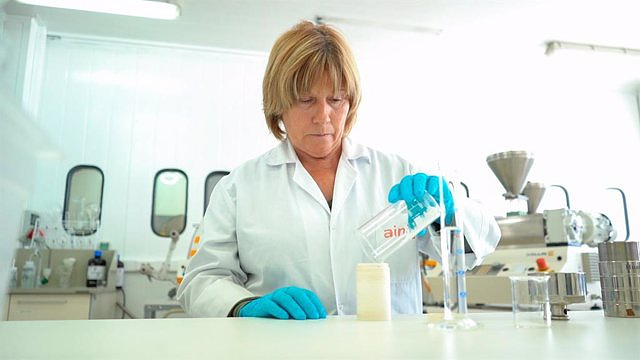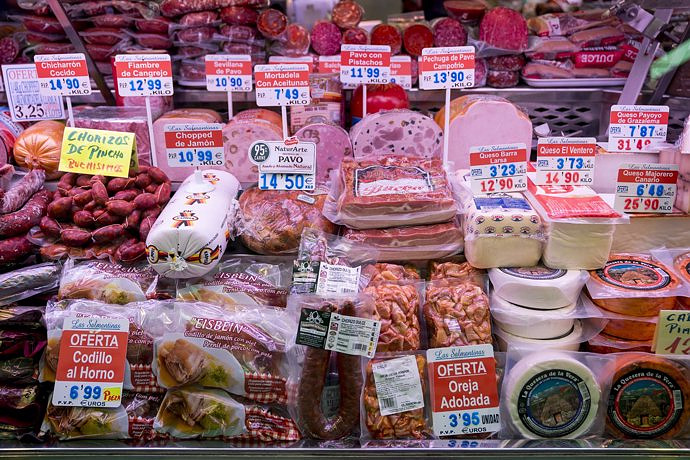VALENCIA, 23 Oct. (EUROPA PRESS) -
The Ainia technology center investigates alternative technological solutions to composting for the management of bioplastic waste from packaging within the framework of the Revaloriza II project. The objective is to obtain valuable materials by applying chemical recycling technologies to plastics, once the useful life of the containers ends. These can be used both for the creation of new recycled polymers and for obtaining "high added value" products.
Following the results obtained in the Revaloriza project, in which Ainia obtained polymer precursors from biopackaging waste through sustainable chemical processes, the second part will focus on scaling the applicability of the technologies developed in the first phase, with the aim of provide solutions to the market, as reported by the entity in a statement.
In addition, the chemical development of polyhydroxyalkanoates (PHAs) will be carried out, a type of bioplastic "expensive to obtain, but very versatile that is currently obtained through biotechnology." This is a "significant" innovation, since until now it had not been possible to apply chemical recycling processes to PHAs.
Likewise, progress will continue in the development of theoretical computational models and the use of databases with the aim of applying them to the systematic design of polymers based on their composition. "The experimental validation of these predictive models will help us design and synthesize recycled polymers with specific properties for a wide range of applications," said Andrés Sala, from the Packaging Technologies Unit at Ainia.
According to the technology center, the Revaloriza II project represents another step in its commitment to finding sustainable solutions to address the challenge of plastic waste. One of the "most promising and innovative" areas is the development of biopolymers, "as a sustainable alternative to traditional plastics derived from fossil sources."
In addition to their renewable origin, these biopolymers are designed to be biodegradable or compostable, but production is expensive. In this sense, chemical recycling offers the possibility of recovering a large part of the added value of these materials once their useful life ends, both for the creation of new recycled plastics and for obtaining products with high added value at competitive costs in the market.

 Exploring Cardano: Inner Workings and Advantages of this Cryptocurrency
Exploring Cardano: Inner Workings and Advantages of this Cryptocurrency Seville.- Economy.- Innova.- STSA inaugurates its new painting and sealing hangar in San Pablo, for 18 million
Seville.- Economy.- Innova.- STSA inaugurates its new painting and sealing hangar in San Pablo, for 18 million Innova.- More than 300 volunteers join the Andalucía Compromiso Digital network in one month to facilitate access to ICT
Innova.- More than 300 volunteers join the Andalucía Compromiso Digital network in one month to facilitate access to ICT Innova.-AMP.- Ayesa acquires 51% of Sadiel, which will create new technological engineering products and expand markets
Innova.-AMP.- Ayesa acquires 51% of Sadiel, which will create new technological engineering products and expand markets The CNMV once again suspends Applus's listing
The CNMV once again suspends Applus's listing Línea Directa earns 10.1 million euros in the first quarter, compared to losses of 5.3 million
Línea Directa earns 10.1 million euros in the first quarter, compared to losses of 5.3 million Unicaja triples its profit in the first quarter, up to 111 million euros
Unicaja triples its profit in the first quarter, up to 111 million euros BBVA earns 2,200 million in the first quarter, 19.1% more
BBVA earns 2,200 million in the first quarter, 19.1% more How Blockchain in being used to shape the future
How Blockchain in being used to shape the future Not just BTC and ETH: Here Are Some More Interesting Coins Worth Focusing on
Not just BTC and ETH: Here Are Some More Interesting Coins Worth Focusing on UPV students build a prototype of a wooden house to move to Equatorial Guinea
UPV students build a prototype of a wooden house to move to Equatorial Guinea The UA opens the call for the Impulso 2024 Awards for the best innovative business initiatives
The UA opens the call for the Impulso 2024 Awards for the best innovative business initiatives ALI, virtual assistant from Alicante, internationally recognized by the OECD
ALI, virtual assistant from Alicante, internationally recognized by the OECD Retrópolis brings the golden age of video games and computing to the UPV
Retrópolis brings the golden age of video games and computing to the UPV A million people demonstrate in France against Macron's pension reform
A million people demonstrate in France against Macron's pension reform Russia launches several missiles against "critical infrastructure" in the city of Zaporizhia
Russia launches several missiles against "critical infrastructure" in the city of Zaporizhia A "procession" remembers the dead of the Calabria shipwreck as bodies continue to wash up on the shore
A "procession" remembers the dead of the Calabria shipwreck as bodies continue to wash up on the shore Prison sentences handed down for three prominent Hong Kong pro-democracy activists
Prison sentences handed down for three prominent Hong Kong pro-democracy activists ETH continues to leave trading platforms, Ethereum balance on exchanges lowest in 3 years
ETH continues to leave trading platforms, Ethereum balance on exchanges lowest in 3 years Investors invest $450 million in Consensys, Ethereum incubator now valued at $7 billion
Investors invest $450 million in Consensys, Ethereum incubator now valued at $7 billion Alchemy Integrates Ethereum L2 Product Starknet to Enhance Web3 Scalability at a Price 100x Lower Than L1 Fees
Alchemy Integrates Ethereum L2 Product Starknet to Enhance Web3 Scalability at a Price 100x Lower Than L1 Fees Mining Report: Bitcoin's Electricity Consumption Declines by 25% in Q1 2022
Mining Report: Bitcoin's Electricity Consumption Declines by 25% in Q1 2022 Oil-to-Bitcoin Mining Firm Crusoe Energy Systems Raised $505 Million
Oil-to-Bitcoin Mining Firm Crusoe Energy Systems Raised $505 Million Microbt reveals the latest Bitcoin mining rigs -- Machines produce up to 126 TH/s with custom 5nm chip design
Microbt reveals the latest Bitcoin mining rigs -- Machines produce up to 126 TH/s with custom 5nm chip design Bitcoin's Mining Difficulty Hits a Lifetime High, With More Than 90% of BTC Supply Issued
Bitcoin's Mining Difficulty Hits a Lifetime High, With More Than 90% of BTC Supply Issued The Biggest Movers are Near, EOS, and RUNE during Friday's Selloff
The Biggest Movers are Near, EOS, and RUNE during Friday's Selloff Global Markets Spooked by a Hawkish Fed and Covid, Stocks and Crypto Gain After Musk Buys Twitter
Global Markets Spooked by a Hawkish Fed and Covid, Stocks and Crypto Gain After Musk Buys Twitter Bitso to offset carbon emissions from the Trading Platform's ERC20, ETH, and BTC Transactions
Bitso to offset carbon emissions from the Trading Platform's ERC20, ETH, and BTC Transactions Draftkings Announces 2022 College Hoops NFT Selection for March Madness
Draftkings Announces 2022 College Hoops NFT Selection for March Madness























